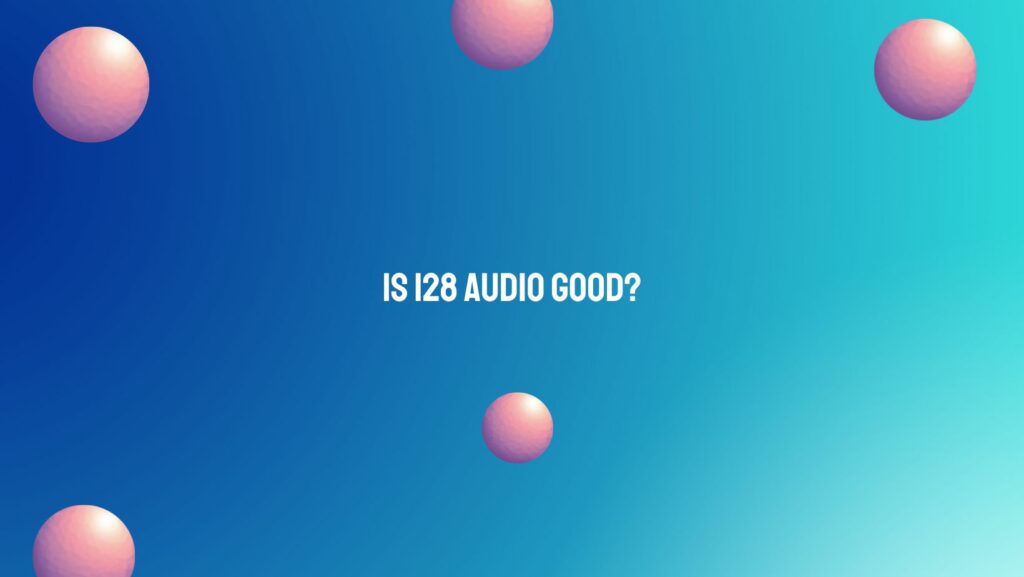In the vast realm of digital audio, the quest for optimal sound quality is a perpetual journey. As listeners navigate through various bitrates and compression algorithms, the question of whether 128kbps audio is “good enough” emerges as a pivotal point of discussion. In this article, we will delve into the intricacies of 128kbps audio, examining its strengths, limitations, and the subjective nature of audio quality.
- Understanding Bitrate:
Bitrate is a fundamental measure of audio quality, representing the amount of data processed per unit of time. In the context of digital audio, a higher bitrate generally implies more detailed and accurate representation of the original audio signal. However, the relationship between bitrate and perceived audio quality is not always straightforward.
- 128kbps Compression:
At 128kbps, audio files undergo a moderate level of compression, reducing file size while attempting to retain as much of the original audio information as possible. This level of compression is often associated with formats like MP3, which prioritize a balance between file size and audio quality.
- Advantages of 128kbps:
One of the primary advantages of 128kbps audio is its efficiency in terms of file size. This makes it an attractive choice for streaming services, online platforms, and portable devices where storage space is a consideration. Additionally, 128kbps audio can provide satisfactory listening experiences, especially when paired with everyday listening scenarios such as background music, casual listening, or portable audio setups.
- Limitations of 128kbps:
The trade-off for the efficiency of 128kbps audio is a reduction in audio fidelity compared to higher bitrate formats. Compression artifacts, such as loss of high-frequency detail and a phenomenon known as “smearing,” where subtle nuances in the music are obscured, can be more pronounced at lower bitrates. Audiophiles and discerning listeners may find these limitations more noticeable, particularly in critical listening environments.
- Subjectivity in Audio Perception:
The perception of audio quality is highly subjective and varies among listeners. While some individuals may find 128kbps audio perfectly satisfactory for their everyday listening needs, others with a heightened sensitivity to audio nuances may prefer higher bitrates to capture the full richness and detail of the music.
- Context of Listening:
The appropriateness of 128kbps audio depends on the context of listening. In scenarios where convenience, portability, or data limitations are paramount, 128kbps may be a pragmatic choice. For more immersive listening experiences or critical listening sessions, higher bitrates or lossless formats may be preferred to capture the subtleties of the recording.
- Advancements in Audio Codecs:
It’s important to note that advancements in audio compression technologies have led to more efficient codecs that can deliver improved audio quality at lower bitrates. Modern codecs, such as AAC and Opus, offer better compression efficiency and can mitigate some of the limitations associated with traditional MP3 compression at similar bitrates.
Conclusion:
The evaluation of 128kbps audio hinges on a delicate balance between efficiency and audio fidelity. While it may be perfectly suitable for casual listening, portability, and certain everyday scenarios, the limitations become more apparent in critical listening environments. As technology continues to advance, listeners can explore newer codecs and higher bitrates to strike a harmonious balance between the practicalities of file size and the desire for an enriching and detailed sonic experience. Ultimately, the goodness of 128kbps audio is a subjective judgment that reflects the diverse preferences and listening habits of individuals in the ever-evolving landscape of digital audio.


